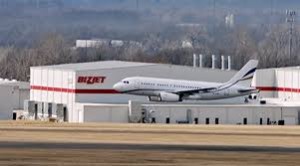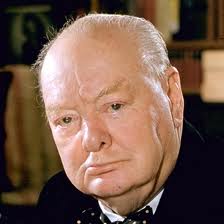The BizJet Case: The Drama Unfolds
 Talk about a way to start off FCPA enforcement in 2013. The Department of Justice has sent an emphatic message: Just when you think things are slowing down, they come out and surprise you.
Talk about a way to start off FCPA enforcement in 2013. The Department of Justice has sent an emphatic message: Just when you think things are slowing down, they come out and surprise you.
I hate to say it but I predicted the BizJet indictments back at a n October 2012 seminar in Houston. Tom Fox and Dan Chapman from Parker Drilling are my witnesses.
I am reminded, however, of Winston Churchill’s famous quote on predictions:
“I always avoid prophesying beforehand because it is much better to prophesy after the event has already taken place.”
For an opening act for 2013, the Justice Department’s message is very clear:
Individual Indictments: Since 2010, Congress and other critics of the FCPA enforcement program have challenged the Justice Department and the SEC on failing to indict individual executive involved in criminal bribery schemes. The Siemens case was used as a poster child for critics to cite as an example of a company paying a mega-fine as a cost of doing business. In response, the Justice Department indicted eight individuals involved in paying bribes in Argentina. The individuals charged have not yet been apprehended.
The SEC, in the past two years, has filed civil enforcement actions against a number of individuals sending its own message that, where a criminal case is declined, the SEC may pick up the case and bring it under civil standards.
With the unsealing of the BizJet indictments against four individuals, two of whom already plead guilty and cooperated and were sentenced to probation, the Justice Department has sent a strong message that individuals will be prosecuted. It is a significant risk going forward that individual executives will come under greater scrutiny.
The evidence involved in the BizJet case appears to be very strong and the Justice Department focused on the case as an appropriate criminal case.
 Opening Up Past Corporate Settlements: The BizJet case also reflects an important prosecution priority. The Department of Justice warned FCPA practitioners and the business community that individuals who were not charged at the same time as a corporate settlement was announced would not necessarily escape further investigation. The BizJet case is a perfect example of what the Justice Department meant.
Opening Up Past Corporate Settlements: The BizJet case also reflects an important prosecution priority. The Department of Justice warned FCPA practitioners and the business community that individuals who were not charged at the same time as a corporate settlement was announced would not necessarily escape further investigation. The BizJet case is a perfect example of what the Justice Department meant.
For executives involved in cases in the past, the message is clear – assuming the Justice Department can bring the case within the five-year statute of limitations, there is a continuing risk of criminal prosecution. Executives around the world must have shuddered when the Justice Department’s action in the BizJet case was explained to them.
Extraordinary Corporate Cooperation: BizJet earned “extraordinary cooperation” in its settlement with the Department of Justice. What that means is that BizJet made witnesses available, and provided documents and support to the Justice Department in the investigation and prosecution of the corporate executives. BizJet’s actions saved the corporation but sacrificed the four executives.
Judicial Reward to Cooperating Defendants: Two of the BizJet executives worked out plea agreements with the Justice Department and agreed to cooperate. They were rewarded for their cooperation with a 5K1.1 motion under the US Sentencing Guidelines for providing “substantial assistance in the investigation and prosecution of others.” The trial judge in the Northern District of Oklahoma rewarded the two defendants by sentencing them to home detention and probation. For individual defendants facing criminal charges, the court’s message to FCPA defendants was clear – if you cooperate and earn a 5K1.1 motion, you will avoid jail time.















Michael,
I am writing about “Why Mexican police takes too long” after a notorious fact on international bribery to “start” investigating. And I am following closely the Bizjet case.
Congratulations for your webpage and tweets.
Luis